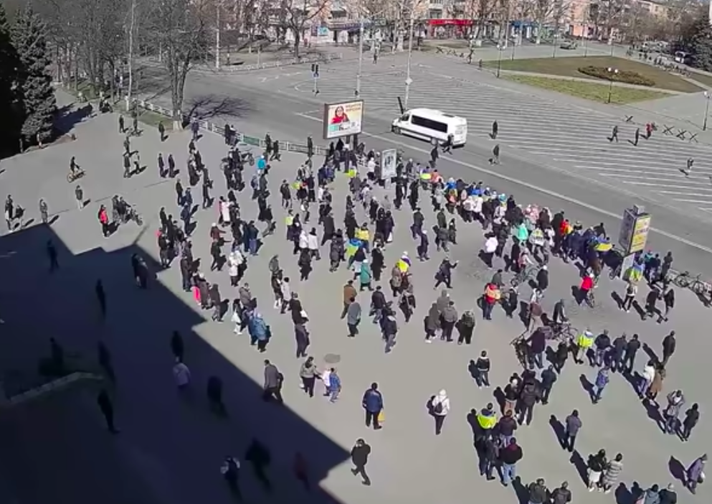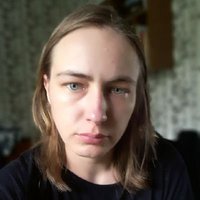“People walk as if they’re on parade. They’re strangely calm; everyone walks around smiling. I can’t understand it,” Yuriy*, 50, tells me on the phone from his home in Kherson. He lives alone in the city – his wife works abroad – and he’s keen to speak to me because, like many of the city’s residents, he’s keen to draw attention to the situation there.
When Russian troops occupied the southern Ukrainian city almost two months ago, life appeared to carry on with some sort of normality for residents – at least in terms of governance. The mayor’s office continued to operate, the Ukrainian flag still flew above the city’s central administration building, and, initially, there seemed to be a ‘tolerant’ attitude towards protests in support of Ukraine. And although there was no official evacuation corridor, people were able to leave the occupied city.
The situation in Kherson has gradually changed, however, as Russia’s occupation of south-eastern Ukraine has continued. Protest rallies have been dispersed with more force, and on 25 April, the Ukrainian flag was removed from the city authorities’ building. Russian forces have apparently appointed their own mayor, though Kherson’s mayor, Ihor Kolykhaev, has not evacuated and continues his work in the city.
Rumours about a ‘referendum’ to consolidate Russian control have long been circulating in the city, and a representative of the Kherson region’s Russian ‘civil-military administration’ recently stated that the region would soon start using the Russian rouble as its official currency.
Daily life
Despite the remaining semblance of official normality – Ukrainian laws are still in force and pensions are being paid – daily life has changed significantly. Immediately after occupying the city, Russian soldiers cut off supply lines for Ukrainian goods and looted local supermarkets. In the three days that followed, residents bought all the remaining food, leaving supermarket shelves bare.
The situation with food has now stabilised as local farmers supply vegetables to the city, but prices have risen significantly for eggs, dairy produce and meat. The city seems to have returned, in a sense, to the 1990s, when Ukrainians had to deal with economic disruption and supply chain collapse following the disintegration of the Soviet Union.



Comments
We encourage anyone to comment, please consult the oD commenting guidelines if you have any questions.